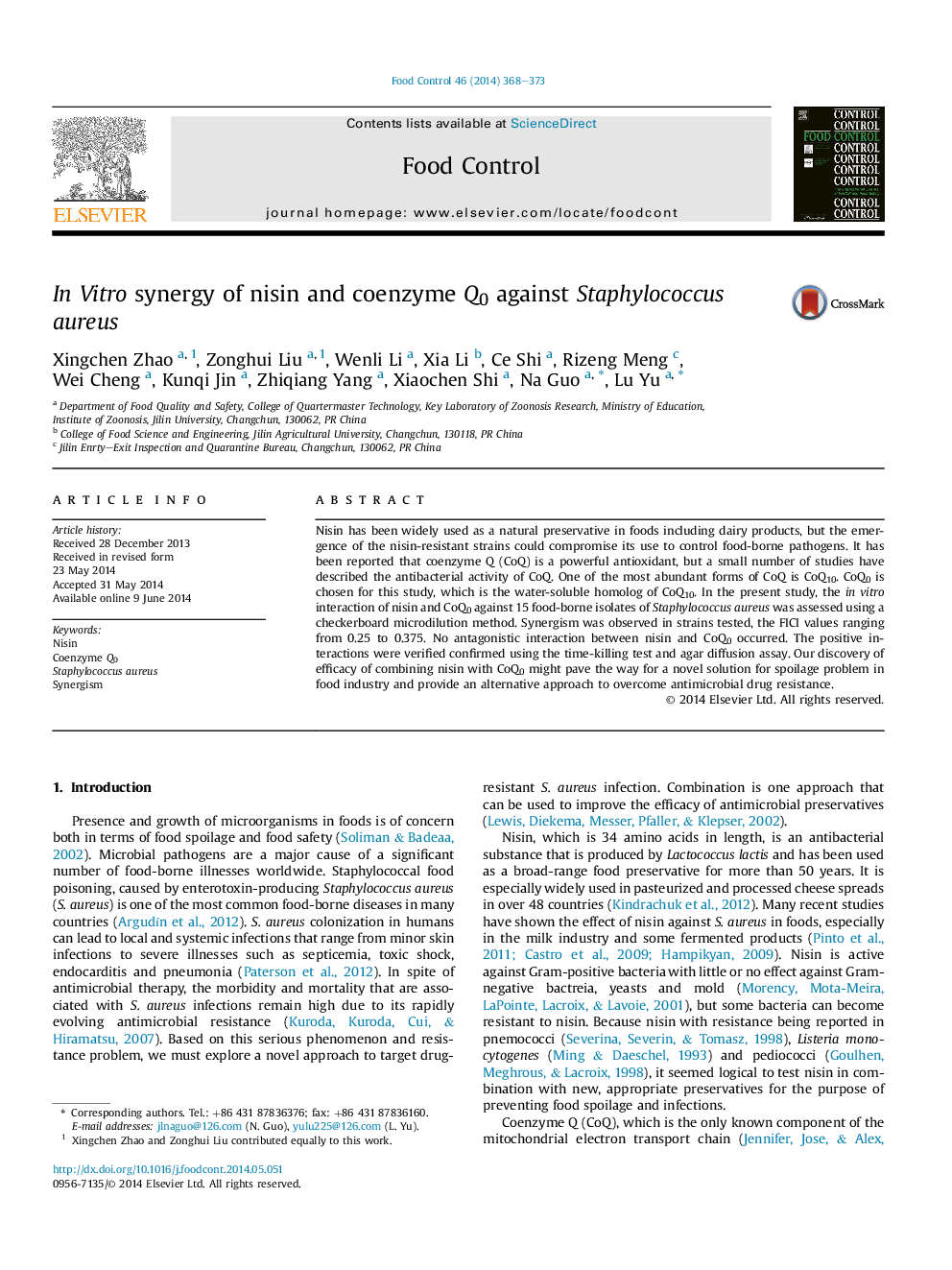| کد مقاله | کد نشریه | سال انتشار | مقاله انگلیسی | نسخه تمام متن |
|---|---|---|---|---|
| 6391246 | 1628416 | 2014 | 6 صفحه PDF | دانلود رایگان |

- The in vitro interaction of nisin and CoQ0 against food-borne isolates was tested.
- The interaction between nisin and CoQ0 against 16 Staphylococcus aureus strains was synergistic.
- Synergism was confirmed using the time-killing test and agar diffusion assay.
- The combination may pave the way for a novel solution for spoilage problem in food.
Nisin has been widely used as a natural preservative in foods including dairy products, but the emergence of the nisin-resistant strains could compromise its use to control food-borne pathogens. It has been reported that coenzyme Q (CoQ) is a powerful antioxidant, but a small number of studies have described the antibacterial activity of CoQ. One of the most abundant forms of CoQ is CoQ10. CoQ0 is chosen for this study, which is the water-soluble homolog of CoQ10. In the present study, the in vitro interaction of nisin and CoQ0 against 15 food-borne isolates of Staphylococcus aureus was assessed using a checkerboard microdilution method. Synergism was observed in strains tested, the FICI values ranging from 0.25 to 0.375. No antagonistic interaction between nisin and CoQ0 occurred. The positive interactions were verified confirmed using the time-killing test and agar diffusion assay. Our discovery of efficacy of combining nisin with CoQ0 might pave the way for a novel solution for spoilage problem in food industry and provide an alternative approach to overcome antimicrobial drug resistance.
Journal: Food Control - Volume 46, December 2014, Pages 368-373